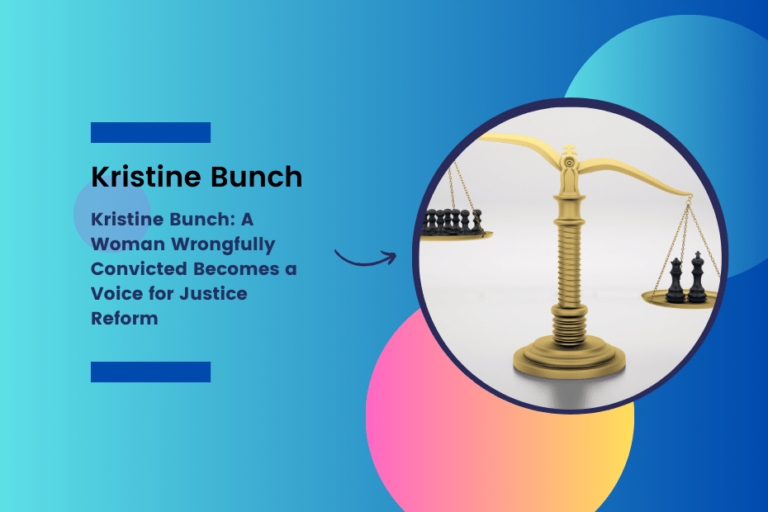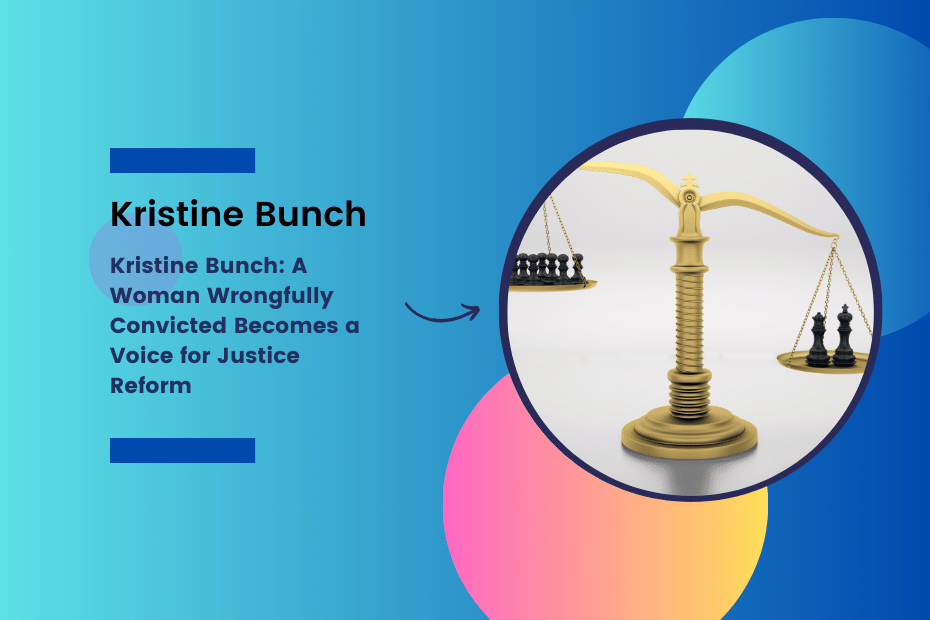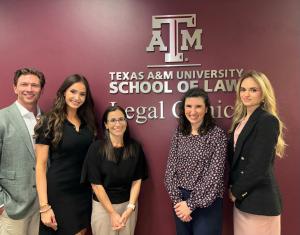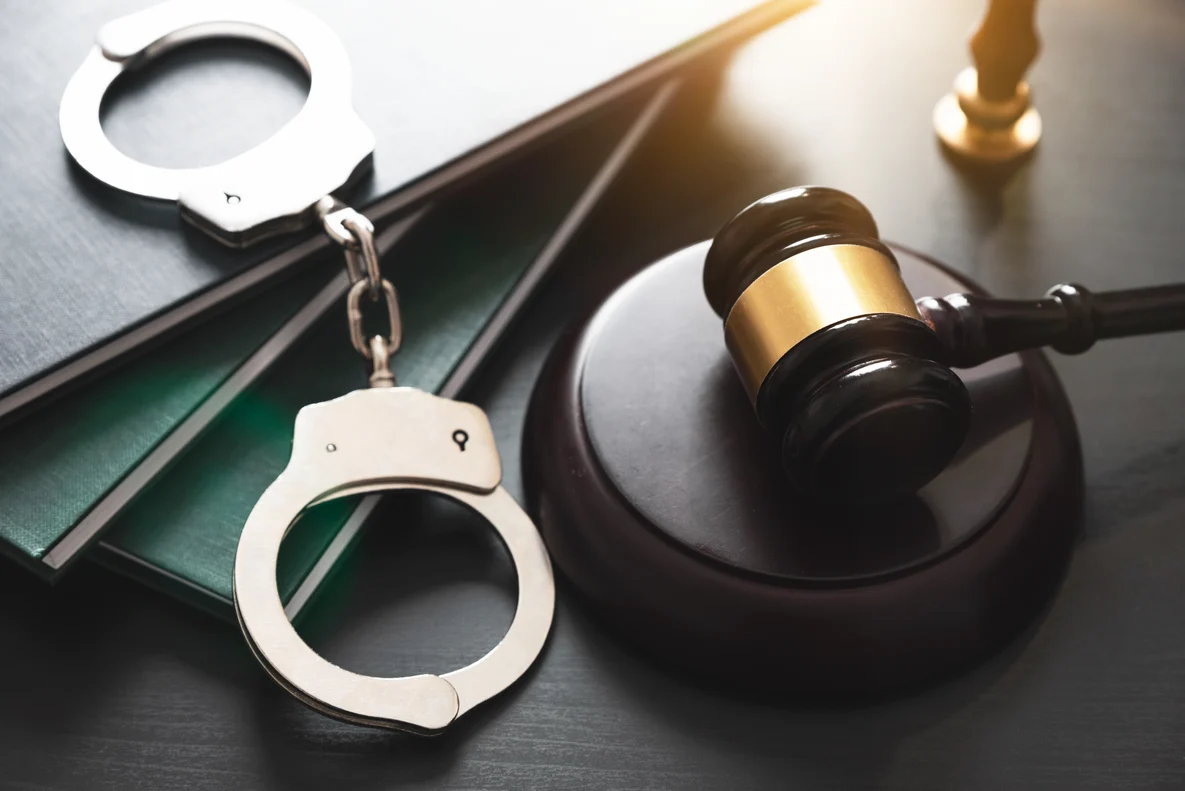Every wrongful conviction represents a profound failure of the criminal justice system. But for women who are wrongfully convicted, the experience is compounded by unique challenges and biases that are often overlooked. Kristine Bunch knows this painful reality all too well.
In 1996, Bunch was a young mother living in Indiana when a tragic fire claimed the life of her 3-year-old son Tony. While still reeling from shock and grief, Bunch found herself the target of a homicide investigation. She was accused of intentionally setting the fire.
“I couldn’t really grasp what was happening to me in the moment because I was in shock,” Bunch recalls. “They said I was cold and unfeeling. Then I started to cry, and to me, that felt like penetrating through a haze; with the fact that I’d just lost my son bearing down on me. Then it was about me crying too much…which was interpreted as I must be acting.”
Bunch’s emotional responses, scrutinized and misinterpreted by investigators, were used as evidence of her guilt. In 1996, she was convicted of murder and arson and sentenced to 60 years in prison. She would spend the next 17 years fighting to prove her innocence from behind bars.
“That was right after I got to the hospital and my dad told me Tony was dead,” Bunch says, recounting the surreal nightmare that upended her life. “I had doctors looking at me and I was then admitted to the hospital…So, while you kind of process that things are happening, you’re not really functioning in the moment.”
Tragically, Bunch’s story is not unique. Among the 35,100 exonerees in the United States, fewer than 300 are women. And a staggering 70% of those women were accused of crimes against loved ones – parents, siblings, children, or partners.
“I think it’s often overlooked that these women are interrogated and treated like criminals after their hearts have just been ripped out,” Bunch says. “The system is just utilizing [their trauma] to create things that look like a crime, even though there has been none. If you look at the statistics, the majority of that 70% are cases like mine – an accident that was made to look like a crime.”
While incarcerated, Bunch dedicated herself to learning the law and working on her case. In 2012, advances in fire science proved that the evidence used to convict her was based on outdated, discredited theories. Her conviction was overturned and she was finally released.
Adjusting to life on the outside brought new challenges. At age 40, Bunch had to relearn basic life skills and rebuild a life interrupted. She moved to Chicago for a fresh start.
“That is your defining moment, and it’s also a wakeup call for what kind of people you allow into your life,” Bunch says of the experience. “I mean, I had what I thought were wonderful friends, people I was close with. And when I was arrested, they were nowhere to be found.”
Slowly, Bunch began to find her footing. She took jobs at a casino and Northwestern University. And she discovered a new purpose – advocating for others who have been failed by the justice system, especially women.
In 2012, Northwestern launched the Women’s Project, the first program in the country focused on investigating wrongful convictions of women. Meeting other women who had endured similar ordeals was a turning point for Bunch.
“I got to meet a lot of other women exonerees, women that were just like me that had lost a child,” she says. “And some of them were so scarred. They couldn’t even talk about it. And I thought, you know, I am blessed. I am not so scarred that I can’t talk about it. I am not broken.”
Bunch began sharing her story through the Women’s Project and the Innocence Project. She worked on legislation to prevent wrongful convictions and assist exonerees in Wyoming, Illinois, and her home state of Indiana. Today, she is a sought-after public speaker.
“I’m always surprised when people come up to me after a speech and say, ‘Oh my god, you’re so charming and engaging…I’ve seen so much from you,'” Bunch says. “It’s hard to wrap my mind around it all because I still get uncomfortable around crowds of people. I still have serious trust issues.”
Despite the ongoing challenges, Bunch remains committed to shining a light on problems within the justice system and advocating for change. She wants people to understand the human toll of wrongful convictions and the unique ways women are impacted.
“When you start figuring out that somebody like me with a fire science case – you know, my main investigator was $500,000, the second investigator was $500,000 as well. I think they spent about $3,500,000 on my fire investigators,” Bunch explains. “So when you’re talking about a nonprofit organization taking on a case, it’s a lot of money and it’s a lot of resources.”
There are an estimated 2 million people currently incarcerated in the U.S., and some studies suggest up to 10% could be innocent. Most will never get the kind of legal assistance that freed Bunch.
“There are good decent people in there that could have received help from the state, from the government, and they would have never ended up in prison,” Bunch says. “And they could have had their lives changed.”
For those who do make it out, the road forward is not easy. But Bunch’s unbreakable spirit has carried her through the darkest of times.
“You don’t know what you have inside of you,” she reflects. “Inner strength! That keeps me happy, smiling, focused on making things better, and determined not to let them win, not to let them beat me.”
Her story is a reminder of the human lives at the heart of debates around criminal justice reform, and the difference one person can make by turning tragedy into purpose. For Bunch, that means continuing to fight, to speak out, and to be a voice for the wrongfully convicted. She knows firsthand the importance of not giving up hope.
“Nobody wants to see that side of you where you say, hey, it’s the worst thing ever,” Bunch says of her wrongful conviction. “But there are also good decent people in there that could have received help…And they could have had their lives changed.”
With advocates like Kristine Bunch leading the charge, perhaps more of those lives will be changed for the better.






.png)